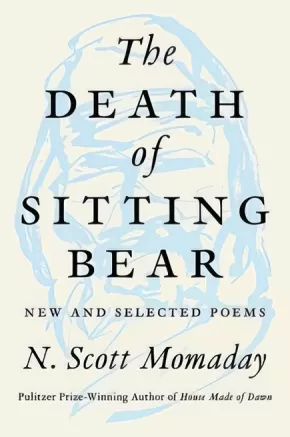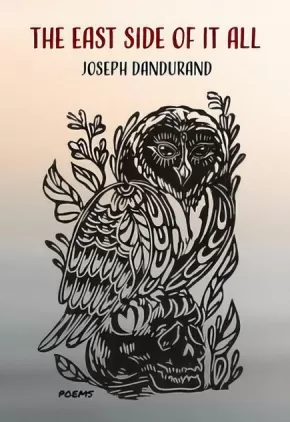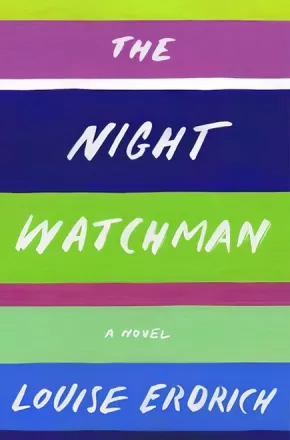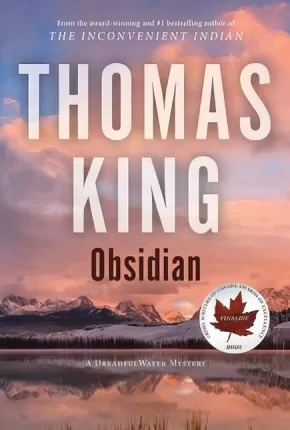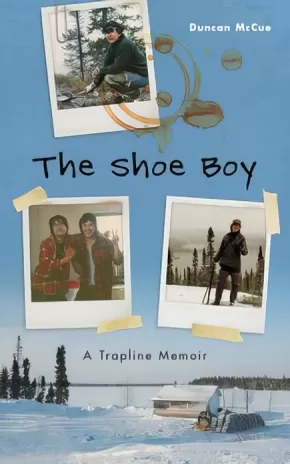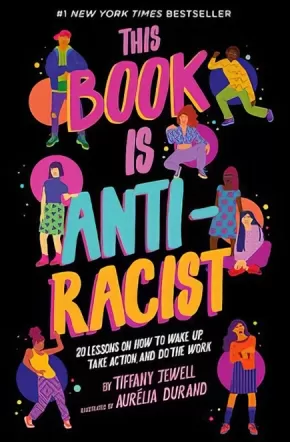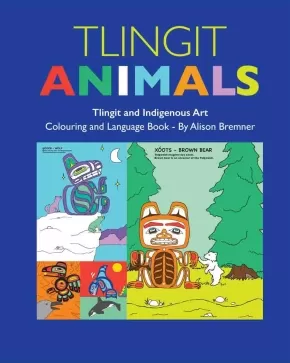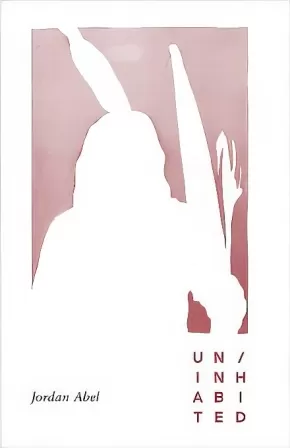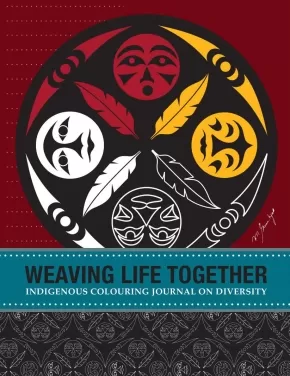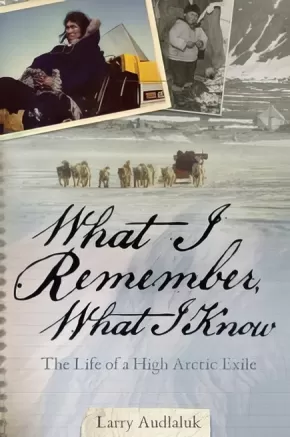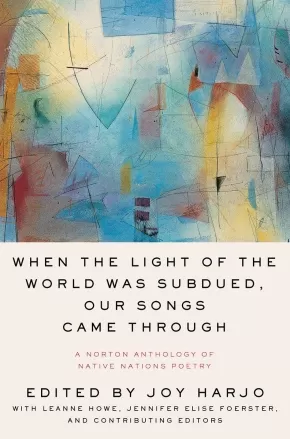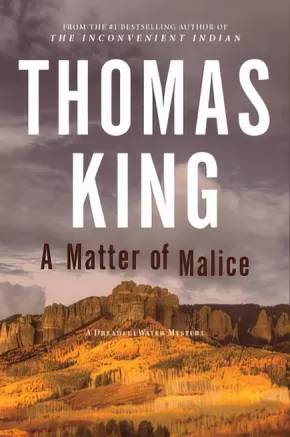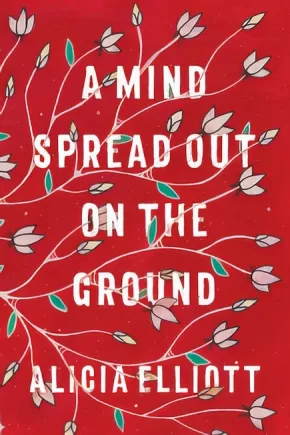
Indigenous Peoples
646
-
660
of
1080 Results;
Sort By
Go To
of 72
The Barren Grounds (PB)
$12.99
Format:
Paperback
Text Content Territories:
Indigenous Canadian; First Nations; Cree (Nehiyawak); Swampy Cree ;
ISBN / Barcode: 9780735266124
Synopsis:
Synopsis:
Narnia meets traditional Indigenous stories of the sky and constellations in an epic middle-grade fantasy series from award-winning author David Robertson.
Morgan and Eli, two Indigenous children forced away from their families and communities, are brought together in a foster home in Winnipeg, Manitoba. They each feel disconnected, from their culture and each other, and struggle to fit in at school and at their new home -- until they find a secret place, walled off in an unfinished attic bedroom. A portal opens to another reality, Askí, bringing them onto frozen, barren grounds, where they meet Ochek (Fisher). The only hunter supporting his starving community, Misewa, Ochek welcomes the human children, teaching them traditional ways to survive. But as the need for food becomes desperate, they embark on a dangerous mission. Accompanied by Arik, a sassy Squirrel they catch stealing from the trapline, they try to save Misewa before the icy grip of winter freezes everything -- including them.
Reviews
"David A. Robertson has written such a fine, beautiful novel. He manages to combine hard truths about our history with a Narnia-like fantasy, sweeping us into the world of the story while opening our hearts as well." -- Susin Nielsen, author of We Are All Made of Molecules and No Fixed Address
“This is a book that is rich in its characterization, evocative in its descriptions, and skillful in its weaving together of traditions of the past and life in the present.” --CM Magazine
"This middle-grade fantasy deftly and compellingly centers Indigenous culture." --STARRED REVIEW, Kirkus Reviews
"The Barren Grounds: The Misewa Saga is a story about two Indigenous children forced away from their families to a foster home in Winnipeg, Manitoba. Struggling to fit, the two children find a space in the attic that opens a portal into another realm. They learn the traditional ways to survive and embark on a dangerous mission there." - The Dalai Lama Center
Educator & Series Information
For ages 10+ (middle-grades).
This is Book 1 of the Misewa Saga. Narnia meets traditional Indigenous stories of the sky and constellations in this epic middle-grade fantasy series from award-winning author David Robertson.
This book is available in French: La saga Misewa: N° 1 - Les terres isolées.
Additional Information
256 pages | 5.44" x 8.25" | Jacket art and interior illustrations Natasha Donovan | Paperback
The Death of Sitting Bear: New and Selected Poems
$35.99
Format:
Hardcover
Text Content Territories:
Indigenous American; Native American; Kiowa;
ISBN / Barcode: 9780062961150
Synopsis:
Synopsis:
Pulitzer Prize winner and celebrated American master N. Scott Momaday returns with a radiant collection of more than 200 new and selected poems rooted in Native American tradition.
“The poems in this book reflect my deep respect for and appreciation of words. . . . I believe that poetry is the highest form of verbal expression. Although I have written in other forms, I find that poems are what I want and need most to read and write. They give life to my mind.”
One of the most important and unique voices in American letters, distinguished poet, novelist, artist, teacher, and storyteller N. Scott Momaday was born into the Kiowa tribe and grew up on Indian reservations in the Southwest. The customs and traditions that influenced his upbringing—most notably the Native American oral tradition—are the centerpiece of his work.
This luminous collection demonstrates Momaday’s mastery and love of language and the matters closest to his heart. To Momaday, words are sacred; language is power. Spanning nearly fifty years, the poems gathered here illuminate the human condition, Momaday’s connection to his Kiowa roots, and his spiritual relationship to the American landscape.
The title poem, “The Death of Sitting Bear” is a celebration of heritage and a memorial to the great Kiowa warrior and chief. “I feel his presence close by in my blood and imagination,” Momaday writes, “and I sing him an honor song.” Here, too, are meditations on mortality, love, and loss, as well as reflections on the incomparable and holy landscape of the Southwest.
The Death of Sitting Bear evokes the essence of human experience and speaks to us all.
Reviews
“These are the poems of a master poet, born of an age when our ears were not so bent towards digital production. Or should I say, these are the poems of a bear who has walked through several generations and stands before us, breathing clouds into a cold dawn, bearing this book of poetry. The bear’s journey is mythic, a migration through tragedy and beauty, over lands rich with horses and stories. When you read these poems, you will learn to hear deeply the sound a soul makes as it sings about the mystery of dreaming and becoming.”— Joy Harjo, Mvskoke Nation, U.S. Poet Laureate
"An admirable capstone to a distinguished literary career, this splendid selection should be a treasure for Momaday’s readers and an excellent introduction for those new to Native American writing."— Library Journal (starred review)
Additional Information
192 pages | 6.00" x 9.00"
The East Side of It All
$19.95
Format:
Paperback
Text Content Territories:
Indigenous Canadian; First Nations; Salish; Coast Salish; Sto:lo; Kwantlen;
Grade Levels: University/College;
ISBN / Barcode: 9780889713802
Synopsis:
Synopsis:
The East Side of It All draws on Joseph Dandurand’s first-hand experiences of life as a drug user and single-room occupant in Vancouver’s Downtown Eastside, and of the ongoing process of healing through reconnection with family, the natural world and traditional Indigenous (Kwantlen) storytelling. His voice is lyrical yet intimate, obscured yet sitting with you at the kitchen table having a cigarette. The East Side of It All is the journey of a broken man who finally accepts his storytelling gift and shares with the world his misery, joy and laughter.
Additional Information
96 pages | 5.50" x 8.00"
The Krillian Key: Salamander Run
$24.00
Format:
Paperback
Text Content Territories:
Indigenous;
ISBN / Barcode: 9781928120216
Synopsis:
Synopsis:
“My million years of immortality have barely begun…”
Pursued by warring human/alien hybrids, the immortal Kyrill, also known as Salamander, is the key to a prison forged by the seven gods of creation. While one of the warring factions moves to protect him, the other seeks to use him to open the prison. Kyrill’s story unfolds in a war-ravaged dystopia where his people, Indigenous North Americans, are space pirates who control the solar system’s spaceways. The Krillian Key: Salamander Run is a fun, sassy and fast-paced graphic novel set in the post-apocalyptic future of Neo-New York circa 2242, with flashbacks to modern-day Canada.
Additional Information
200 pages | 5.50" x 8.50" | black and white illustrations
The Night Watchman (HC) (1 in Stock)
$35.99
Format:
Hardcover
Text Content Territories:
Indigenous American; Native American; Anishinaabeg; Ojibwe (Chippewa);
ISBN / Barcode: 9780062671189
Synopsis:
Synopsis:
Based on the extraordinary life of National Book Award-winning author Louise Erdrich’s grandfather who worked as a night watchman and carried the fight against Native dispossession from rural North Dakota all the way to Washington, D.C., this powerful novel explores themes of love and death with lightness and gravity and unfolds with the elegant prose, sly humor, and depth of feeling of a master craftsman.
Thomas Wazhashk is the night watchman at the jewel bearing plant, the first factory located near the Turtle Mountain Reservation in rural North Dakota. He is also a Chippewa Council member who is trying to understand the consequences of a new “emancipation” bill on its way to the floor of the United States Congress. It is 1953 and he and the other council members know the bill isn’t about freedom; Congress is fed up with Indians. The bill is a “termination” that threatens the rights of Native Americans to their land and their very identity. How can the government abandon treaties made in good faith with Native Americans “for as long as the grasses shall grow, and the rivers run”?
Since graduating high school, Pixie Paranteau has insisted that everyone call her Patrice. Unlike most of the girls on the reservation, Patrice, the class valedictorian, has no desire to wear herself down with a husband and kids. She makes jewel bearings at the plant, a job that barely pays her enough to support her mother and brother. Patrice’s shameful alcoholic father returns home sporadically to terrorize his wife and children and bully her for money. But Patrice needs every penny to follow her beloved older sister, Vera, who moved to the big city of Minneapolis. Vera may have disappeared; she hasn’t been in touch in months, and is rumored to have had a baby. Determined to find Vera and her child, Patrice makes a fateful trip to Minnesota that introduces her to unexpected forms of exploitation and violence, and endangers her life.
Thomas and Patrice live in this impoverished reservation community along with young Chippewa boxer Wood Mountain and his mother Juggie Blue, her niece and Patrice’s best friend Valentine, and Stack Barnes, the white high school math teacher and boxing coach who is hopelessly in love with Patrice.
In The Night Watchman, Louise Erdrich creates a fictional world populated with memorable characters who are forced to grapple with the worst and best impulses of human nature. Illuminating the loves and lives, the desires and ambitions of these characters with compassion, wit, and intelligence, The Night Watchman is a majestic work of fiction from this revered cultural treasure.
Awards
- 2021 Pulitzer Prize for Fiction
Additional Information
464 Pages | 6" x 9"
|
|
The Obsidian Murders
$22.99
Format:
Paperback
Text Content Territories:
Indigenous American; Native American; Cherokee;
Grade Levels: 12; University/College;
ISBN / Barcode: 9781443455206
Synopsis:
Synopsis:
From the award-winning and #1 bestselling author of The Back of the Turtle; Green Grass, Running Water and The Inconvenient Indian
Thumps DreadfulWater’s world is turned upside down when Nina Maslow, the producer of a true-crime reality-TV show, turns up dead after working on a cold case that Thumps has spent years trying to forget. What’s more, someone seems set on taunting Thumps, leaving reminders of the Obsidian murder case around town. Is it possible that the elusive serial killer who murdered his girlfriend and her daughter all those years ago has resurfaced in Chinook? Or is this the work of a copycat looking to mess with Thumps by stirring up memories from his past?
Dragged back into a case that has haunted him for years, Thumps DreadfulWater is determined to solve the mystery of the Obsidian murders. But as he works the case, he begins to realize just how dangerous the person he is dealing with is—and that he might be the next target.
Thumps DreadfulWater, the sly, wry, reluctant investigator of Cold Skies and A Matter of Malice, returns in another irresistible mystery that only Thomas King could create.
Series Information
This book is from the DreadfulWater Mystery series, a mystery/detective series from Thomas King.
Books in this series include:
- Dreadful Water
- The Red Power Murders
- Cold Skies
- A Matter of Malice
- The Obsidian Murders
- Deep House
- Double Eagle
- Black Ice
Additional Information
240 pages | 6.00" x 9.00"
The Shoe Boy: A Trapline Memoir
$19.95
Format:
Paperback
Text Content Territories:
Indigenous Canadian; First Nations; Anishinaabeg; Cree (Nehiyawak); James Bay Cree;
ISBN / Barcode: 9780774880572
Synopsis:
Synopsis:
At the age of seventeen, an Anishinabe boy who was raised in the south joined a James Bay Cree family in a one-room hunting cabin in the isolated wilderness of northern Quebec. In the five months that followed, he learned a way of life on the land with which few are familiar, where the daily focus is on the necessities of life, and where both skill and finesse are required for self-sufficiency.
In The Shoe Boy, that boy – Duncan McCue – takes us on an evocative journey that explores the hopeful confusion of the teenage years, entwined with the challenges and culture shock of coming from a mixed-race family and moving to the unfamiliar North. As he reflects on his search for his own personal identity, he illustrates the relationship Indigenous peoples have with their lands, and the challenges urban Indigenous people face when they seek to reconnect to traditional lifestyles.
The result is a contemplative, honest, and unexpected coming-of-age memoir set in the context of the Cree struggle to protect their way of life, after massive hydro-electric projects forever altered the landscape they know as Eeyou Istchee.
This memoir will be of interest to readers of all ages who want to know more about the interplay of traditional and contemporary Indigenous lifestyles, the challenges of identity for First Nations youth, and the relationship Indigenous peoples have with their land.
Reviews
"Frank, funny and evocative, The Shoe Boy deftly entwines the challenges of identity for First Nations youth, the sexual frustration and hopeful confusion of the teenage years, and the realities of living in an enduring state of culture shock." — CBC Books
"The Shoe Boy is a valuable read and will enrich anyone who tunes in to CBC Radio One on Sunday afternoons, as McCue establishes his voice in the conversation of Canada.— Thomas Billingsley, Globe and Mail
Educator Information
Related Topics: Biography, Memoirs, and Letters; Canadian Studies; Indigenous Studies.
Recommended in the Canadian Indigenous Books for Schools 2020/2021 resource list for grades 9 to 12 for English Language Arts and Social Studies.
Caution: mature language, references to sex, alcohol, and suicide.
Additional Information
88 pages | 5.00" x 8.00"
This Book Is Anti-Racist: 20 Lessons on How to Wake Up, Take Action, and Do the Work
$19.99
Artists:
Format:
Paperback
Text Content Territories:
Indigenous American;
ISBN / Barcode: 9780711245211
Synopsis:
Synopsis:
Who are you? What is racism? Where does it come from? Why does it exist? What can you do to disrupt it? Learn about social identities, the history of racism and resistance against it, and how you can use your anti-racist lens and voice to move the world toward equity and liberation.
“In a racist society, it’s not enough to be non-racist—we must be ANTI-RACIST.” —Angela Davis
Gain a deeper understanding of your anti-racist self as you progress through 20 chapters that spark introspection, reveal the origins of racism that we are still experiencing, and give you the courage and power to undo it. Each lesson builds on the previous one as you learn more about yourself and racial oppression. An activity at the end of every chapter gets you thinking and helps you grow with the knowledge. All you need is a pen and paper.
Author Tiffany Jewell, an anti-bias, anti-racist educator and activist, builds solidarity beginning with the language she chooses—using gender neutral words to honor everyone who reads the book. Illustrator Aurélia Durand brings the stories and characters to life with kaleidoscopic vibrancy.
After examining the concepts of social identity, race, ethnicity, and racism, learn about some of the ways people of different races have been oppressed, from Indigenous Americans and Australians being sent to boarding school to be “civilized” to a generation of Caribbean immigrants once welcomed to the UK being threatened with deportation by strict immigration laws.
Find hope in stories of strength, love, joy, and revolution that are part of our history, too, with such figures as the former slave Toussaint Louverture, who led a rebellion against white planters that eventually led to Haiti’s independence, and Yuri Kochiyama, who, after spending time in an internment camp for Japanese Americans during WWII, dedicated her life to supporting political prisoners and advocating reparations for those wrongfully interned.
Learn language and phrases to interrupt and disrupt racism. So, when you hear a microaggression or racial slur, you'll know how to act next time.
This book is written for EVERYONE who lives in this racialized society—including the young person who doesn’t know how to speak up to the racist adults in their life, the kid who has lost themself at times trying to fit into the dominant culture, the children who have been harmed (physically and emotionally) because no one stood up for them or they couldn’t stand up for themselves, and also for their families, teachers, and administrators.
With this book, be empowered to actively defy racism and xenophobia to create a community (large and small) that truly honors everyone.
Educator Information
Recommended for ages 11 to 15.
Some, but limited, Indigenous content.
A journal filled with activities is also available: This Book Is Anti-Racist Journal: Over 50 Activities to Help You Wake Up, Take Action, and Do The Work
Additional Information
160 pages | 5.15" x 7.75" | Colour Illustrations | Paperback
Tlingit Animals: Tlingit and Indigenous Art Colouring and Language Book
$9.00
Artists:
Format:
Paperback
Text Content Territories:
Indigenous American; Alaska Native; Tlingit;
ISBN / Barcode: 9781554766239
Synopsis:
Synopsis:
Alaskan Alison Bremner reclaims her ancestral language in this Tlingit coloring book featuring her original art. Alongside each drawing, each animal is identified by their English and Tlingit names. The English and Tlingit sentences below explain each animal’s cultural significance. Tlingit Animals is intended to teach younger generations Tlingit culture and language, in addition to developing reading skills and creativity.
Educator Information
24 pages colouring and language book Tlingit Indigenous Art
Printed in Canada
Additional Information
24 Pages
Un/inhabited - 2nd Edition
$24.95
Format:
Paperback
Text Content Territories:
Indigenous Canadian;
ISBN / Barcode: 9781772012682
Synopsis:
Synopsis:
This is the second edition of award-winning Nisga’a poet Jordan Abel’s second collection of poetry, Un/inhabited, which maps the terrain of the public domain to create a layered investigation of the interconnections between language and land.
Abel constructed the book’s source text by compiling ninety-one complete western novels found on Project Gutenberg, an online archive of public domain works. Using his word processor’s Ctrl+F function, he searched the document in its totality for words that relate to the political and social aspects of land, territory, and ownership. Each search query represents a study in context (How was this word deployed? What surrounded it? What is left over once that word is removed?) that accumulates toward a representation of the public domain as a discoverable and inhabitable body of land.
Featuring essays by Project Space founder Tracy Stefanucci and independent curator Kathleen Ritter – the first pieces of scholarship on Abel’s work – Un/inhabited reminds us of the power of language as material and invites us to reflect on what is present when we see nothing.
Additonal Information
240 pages | 5.40" x 8.50" | Paperback | 2nd Edition
Weaving Life Together: Indigenous Colouring Journal on Diversity
$12.99
Artists:
Format:
Paperback
Text Content Territories:
Indigenous Canadian;
ISBN / Barcode: 9781554766253
Synopsis:
Synopsis:
Each page offers traditional and cultural insights into the natural and supernatural worlds. Thought-provoking questions are intended to deepen personal development and our relationships with others. The corresponding animal on the next page allows readers to take the time to further reflect and connect with their creativity as they colour in the animals.
Additional Information
32 Pages
What I Remember, What I Know
$25.95
Format:
Paperback
Text Content Territories:
Indigenous Canadian; Inuit;
ISBN / Barcode: 9781772272376
Synopsis:
Synopsis:
Larry Audlaluk has seen incredible changes in his lifetime. Born in northern Quebec, he relocated with his family to the High Arctic in the early 1950s. They were promised a land of plenty. They discovered an inhospitable polar desert.
Sharing memories both painful and joyous, Larry takes the reader on a journey to the Arctic as his family struggles to survive and new communities are formed. By turns heart-wrenching and humorous. Larry tells of his journey through relocation, illness, residential schooling, and the encroachment of southern culture.
Excerpt from What I Remember, What I Know
Many stories have been written about how Inuit families were relocated to the High Arctic. The one most written about is economic opportunity. The other is sovereignty. The writers are always careful to use the word "claims" when they're talking about sovereignty, as if to make our claims untrue. The story is long, complicated, and documented by various groups, besides the official records. It has been told from so many angles and moods, from social and political perspectives. I will tell you the story of my family's relocation from personal experience.
Additional Information
300 pages | 6.00" x 9.00"
When the Light of the World Was Subdued, Our Songs Came Through: A Norton Anthology of Native Nations Poetry
$25.95
Editors:
Format:
Paperback
Text Content Territories:
Indigenous American;
Grade Levels: 12; University/College;
ISBN / Barcode: 9780393356809
Synopsis:
Synopsis:
United States Poet Laureate Joy Harjo gathers the work of more than 160 poets, representing nearly 100 indigenous nations, into the first historically comprehensive Native poetry anthology.
This landmark anthology celebrates the indigenous peoples of North America, the first poets of this country, whose literary traditions stretch back centuries. Opening with a blessing from Pulitzer Prize–winner N. Scott Momaday, the book contains powerful introductions from contributing editors who represent the five geographically organized sections. Each section begins with a poem from traditional oral literatures and closes with emerging poets, ranging from Eleazar, a seventeenth-century Native student at Harvard, to Jake Skeets, a young Diné poet born in 1991, and including renowned writers such as Luci Tapahanso, Natalie Diaz, Layli Long Soldier, and Ray Young Bear. When the Light of the World Was Subdued, Our Songs Came Through offers the extraordinary sweep of Native literature, without which no study of American poetry is complete.
Reviews
This anthology is revelatory and stunning.… It shows the remarkable strength and diversity of Native poetry, which vitalizes all of American poetry. It is essential reading.—Arthur Sze, National Book Award–winning author of Sight Lines
Additional Information
352 pages | 6.14" x 9.29" | Paperback
A Matter of Malice
$22.99
Format:
Paperback
Text Content Territories:
Indigenous American; Native American; Cherokee;
Grade Levels: 12; University/College;
ISBN / Barcode: 9781443455176
Synopsis:
Synopsis:
When a TV producer asks Thumps to assist with an episode about a local woman from a wealthy family whose death was ruled “misadventure,” he is reluctant to get involved. Then the producer dies in the exact same manner, and Thumps finds himself solving two cases.
Can a reality TV show solve a cold case?
The crew of a true-crime reality TV show, Malice Aforethought, shows up in Chinook to do an episode about the death of Trudy Samuels. Trudy’s death had originally been ruled accidental, but with ratings in mind, one of the producers, Nina Maslow, wants to prove it was murder. And she wants Thumps to help. Thumps is reluctant to get involved until Nina dies in the exact same place and in the exact same way as Trudy. Are the two deaths related? Or are there two murderers on the loose in Chinook? Thumps uses Nina’s Malice Aforethought files to try to fit the pieces of the puzzle together, and in the process discovers that she had already started work on another case close to Thumps' heart: the Obsidian murders.
Series Information
This novel is part of the DreadfulWater Mystery series from Thomas King. Books in this series include:
- Dreadful Water
- The Red Power Murders
- Cold Skies
- A Matter of Malice
- The Obsidian Murders
- Deep House
- Double Eagle
- Black Ice
Additional Information
|
A Mind Spread Out on the Ground
$21.00
Format:
Paperback
Text Content Territories:
Indigenous Canadian; First Nations; Haudenosaunee (Iroquois);
Grade Levels: 12; University/College;
ISBN / Barcode: 9780385692403
Synopsis:
Synopsis:
A bold and profound work by Haudenosaunee writer Alicia Elliott, A Mind Spread Out on the Ground is a personal and critical meditation on trauma, legacy, oppression and racism in North America.
In an urgent and visceral work that asks essential questions about the treatment of Native people in North America while drawing on intimate details of her own life and experience with intergenerational trauma, Alicia Elliott offers indispensable insight and understanding to the ongoing legacy of colonialism. What are the links between depression, colonialism and loss of language--both figurative and literal? How does white privilege operate in different contexts? How do we navigate the painful contours of mental illness in loved ones without turning them into their sickness? How does colonialism operate on the level of literary criticism?
A Mind Spread Out on the Ground is Alicia Elliott's attempt to answer these questions and more. In the process, she engages with such wide-ranging topics as race, parenthood, love, mental illness, poverty, sexual assault, gentrification, writing and representation. Elliott makes connections both large and small between the past and present, the personal and political--from overcoming a years-long history with head lice to the way Native writers are treated within the Canadian literary industry; her unplanned teenage pregnancy to the history of dark matter and how it relates to racism in the court system; her childhood diet of Kraft dinner to how systematic oppression is linked to depression in Native communities. With deep consideration and searing prose, Elliott extends far beyond her own experiences to provide a candid look at our past, an illuminating portrait of our present and a powerful tool for a better future.
Reviews
"This book is hard, vital medicine. It is a dance of survival and cultural resurgence. Above all, it is breathtakingly contemporary Indigenous philosophy, in which the street is also part of the land, and the very act of thinking is conditioned by struggles for justice and well-being." —Warren Cariou, author of Lake of the Prairies
"These essays are of fiercest intelligence and courageous revelation. Here, colonialism and poverty are not only social urgencies, but violence felt and fought in the raw of the everyday, in embodied life and intimate relations. This is a stunning, vital triumph of writing." —David Chariandy, author of Brother
"Wildly brave and wholly original, Alicia Elliot is the voice that rouses us from the mundane, speaks political poetry and brings us to the ceremony of everyday survival. Her words remind us to carry both our weapons and our medicines, to hold both our strength and our open, weeping hearts. A Mind Spread Out on the Ground is what happens when you come in a good way to offer prayer, and instead, end up telling the entire damn truth of it all." —Cherie Dimaline, author of The Marrow Thieves
"A Mind Spread Out on the Ground is a new lens on Indigenous Canadian literature." —Terese Marie Mailhot, author of Heart Berries
"We need to clone Alicia Elliott because the world needs more of this badass writer. A Mind Spread Out on the Ground showcases her peculiar alchemy, lighting the darkest corners of racism, classism, sexism with her laser-focused intellect and kind-hearted soul-searching. A fresh and revolutionary cultural critic alternately witty, vulnerable and piercing." —Eden Robinson, author of Son of a Trickster and Trickster Drift
"The future of CanLit is female, is Indigenous—is Alicia Elliott. I anticipate this book to be featured on every 'best of' and award list in 2019, and revered for years to come." —Vivek Shraya, author of I’m Afraid of Men and even this page is white
"In A Mind Spread Out on the Ground, Elliott invites readers into her unceded mind and heart, taking us on a beautiful, incisive and punk rock tour of Tuscarora brilliance. Elliott's voice is fire with warmth, light, rage and endless transformation." —Leanne Betasamosake Simpson, author of This Accident of Being Lost
"Alicia Elliott has gifted us with an Indigenous woman's coming of age story, told through engagingly thoughtful, painfully poignant and enraging essays on race, love and belonging. With poetic prose and searing honesty, she lays bare what it is like to grow up Indigenous and exist in a country proud of its tolerance, but one that has proven to be anything but. She opens eyes and captures hearts, leading you by the hand to see our fractured world through her eyes. Alicia is exactly the voice we need to hear now." —Tanya Talaga, author of Seven Fallen Feathers
"Incisive. That's the word I keep coming back to. A Mind Spread out on the Ground is incredibly incisive. Alicia Elliot slices through the sometimes complicated, often avoided issues affecting so many of us in this place now called Canada. She is at once political, personal, smart, funny, global and, best of all, divinely human. Necessary. That's the other word I keep thinking about. In every chapter, she manages to find the perfect word and the precise argument needed—I found myself saying 'yes, yes, that is exactly it' more than once. I am so grateful for her work." —Katherena Vermette, author of The Break
"A Mind Spread Out on the Ground is an astonishing book of insightful and affecting essays that will stay with you long after the final page." —Zoe Whittall, author of The Best Kind of People
Additional Information
240 pages | 5.75" x 8.50"
Sort By
Go To
of 72




